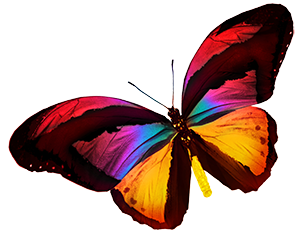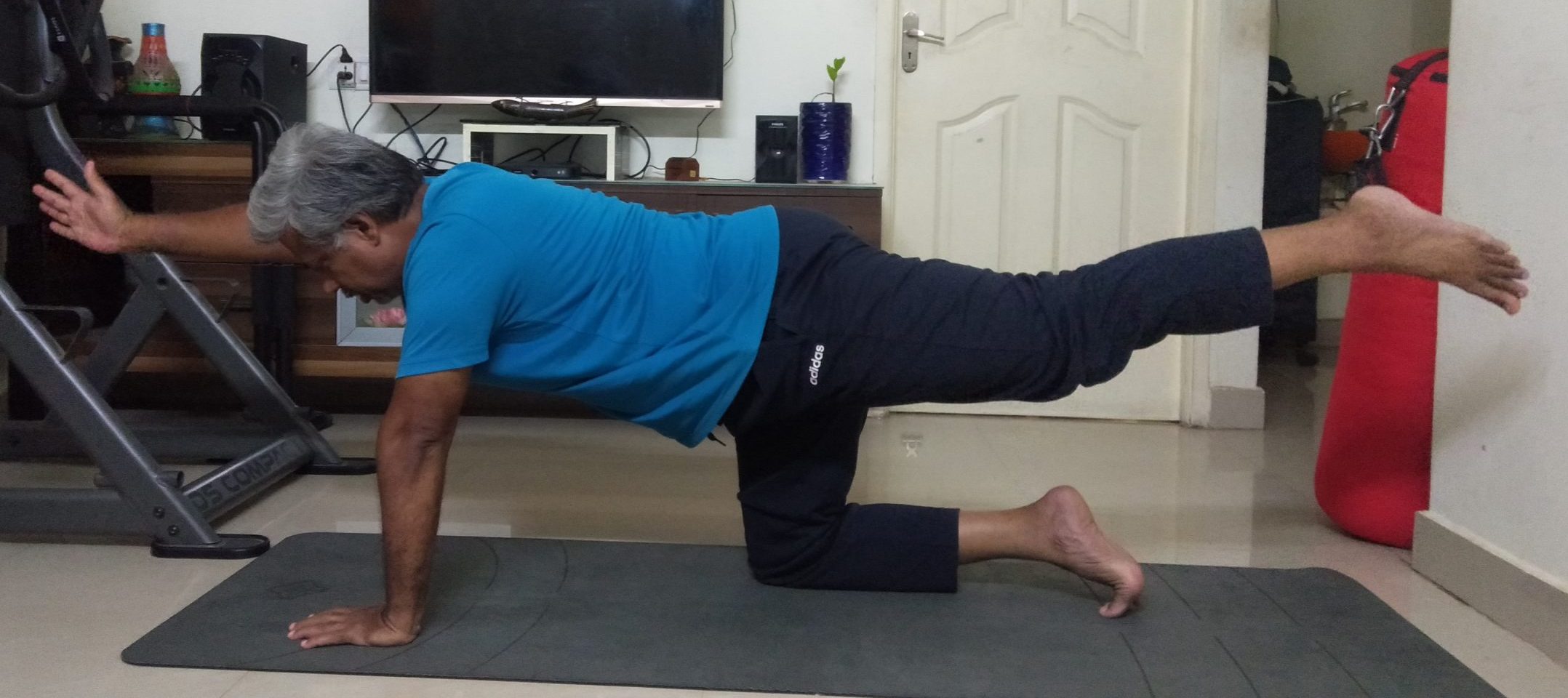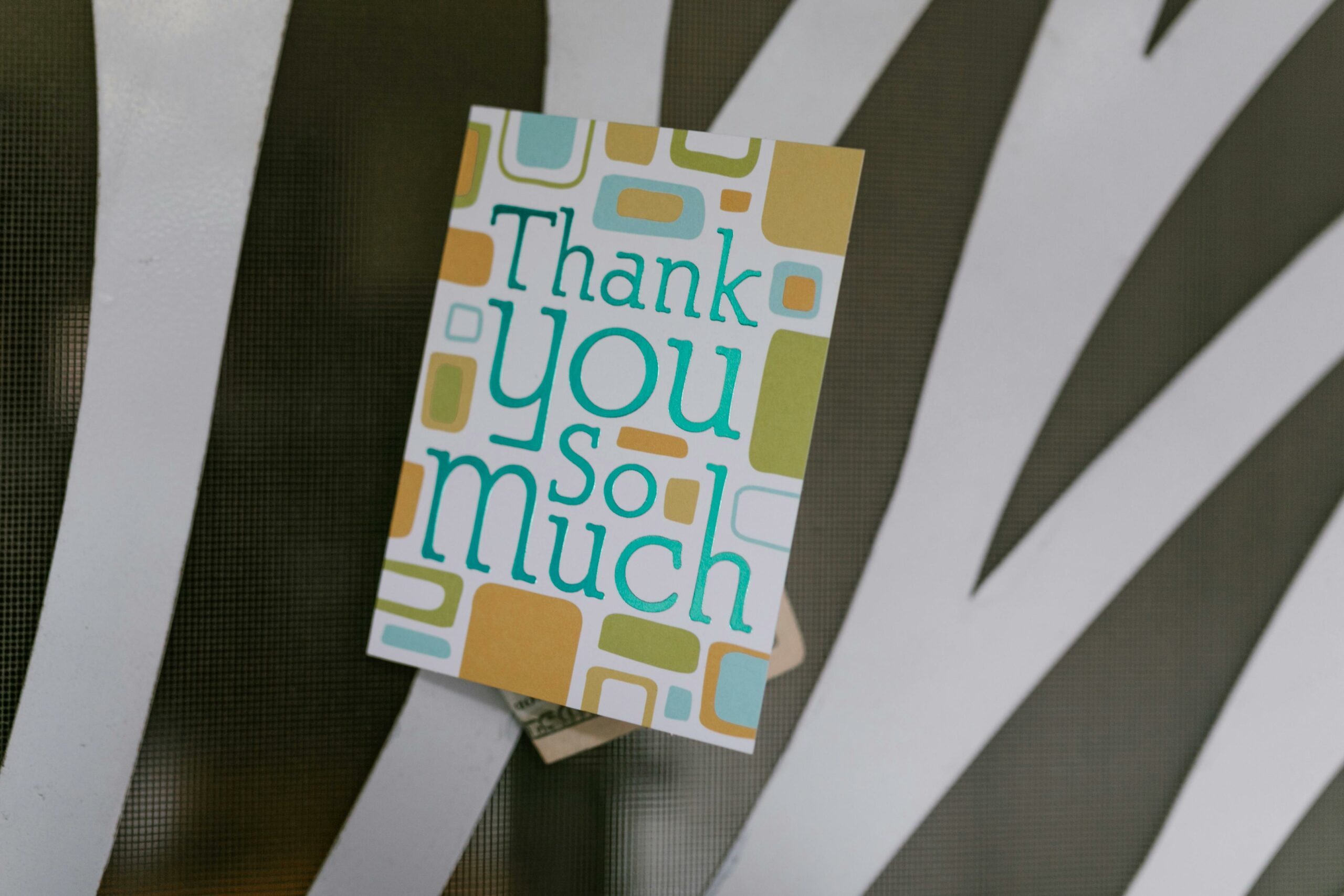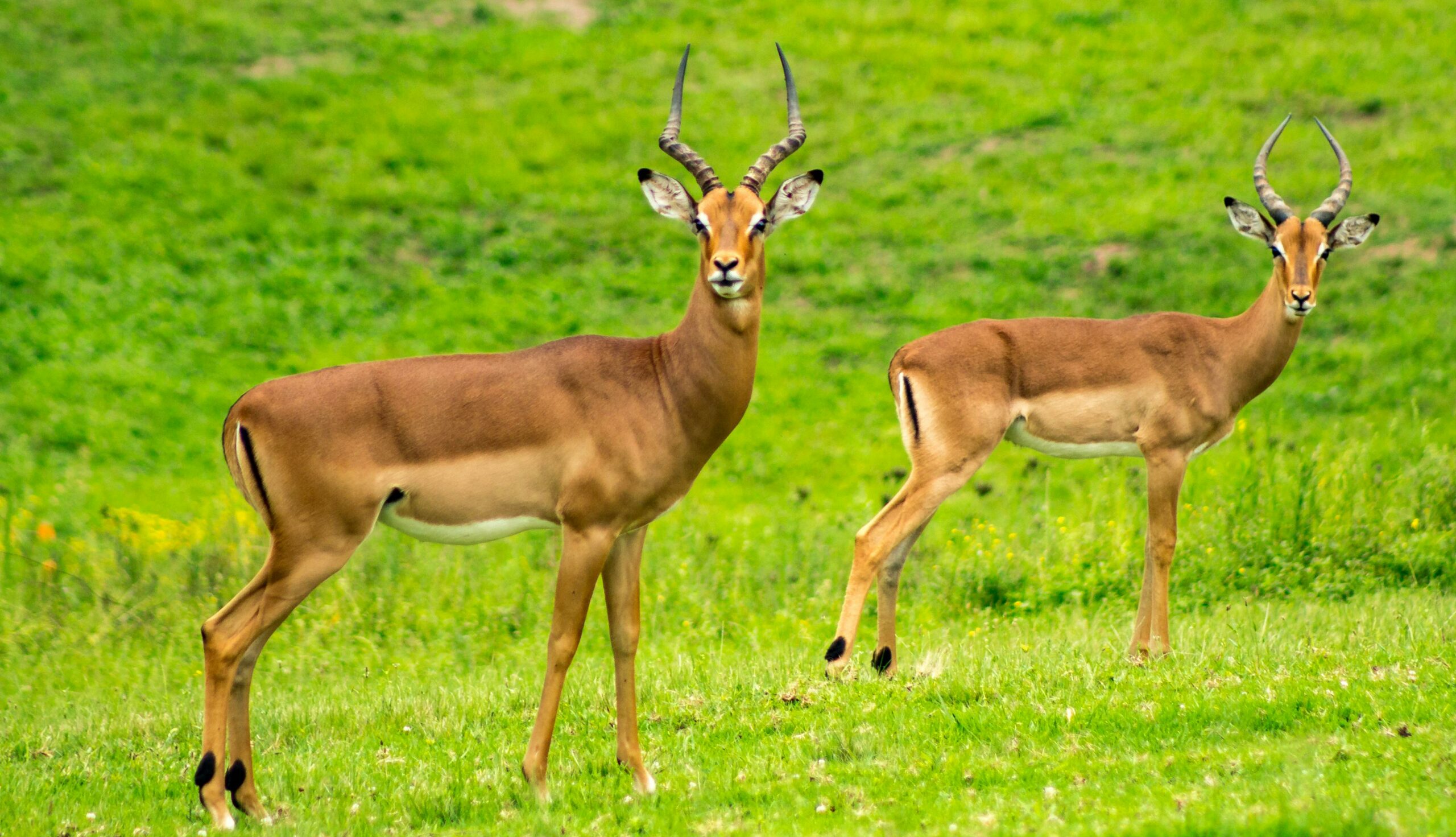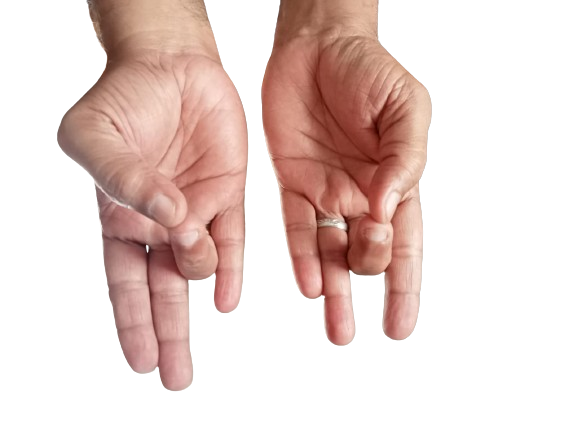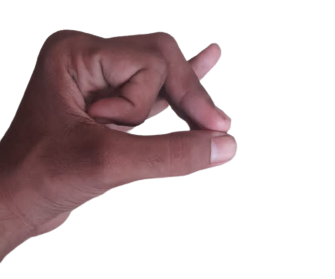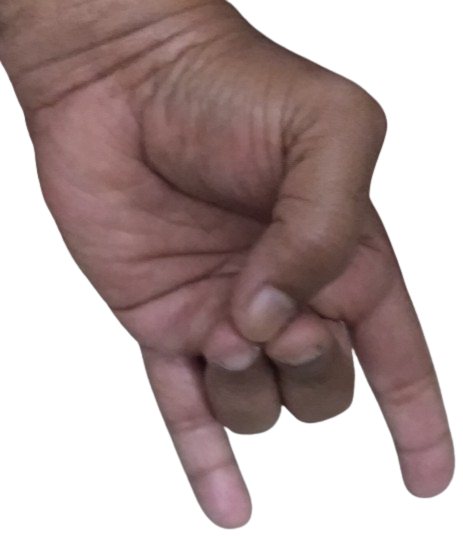The word ‘danda’ in Sanskrit means ‘stick’, ‘yamana’ means ‘balancing’ or ‘controlling’, ‘bharma’ means ‘board that holds the table’. Since the pose involves balancing the body in controlled manner while resembling a table it is called thus.
Balancing Table Top Pose strengthens abdominal region and spine. Regular practice of the pose promotes balance of body and mind.
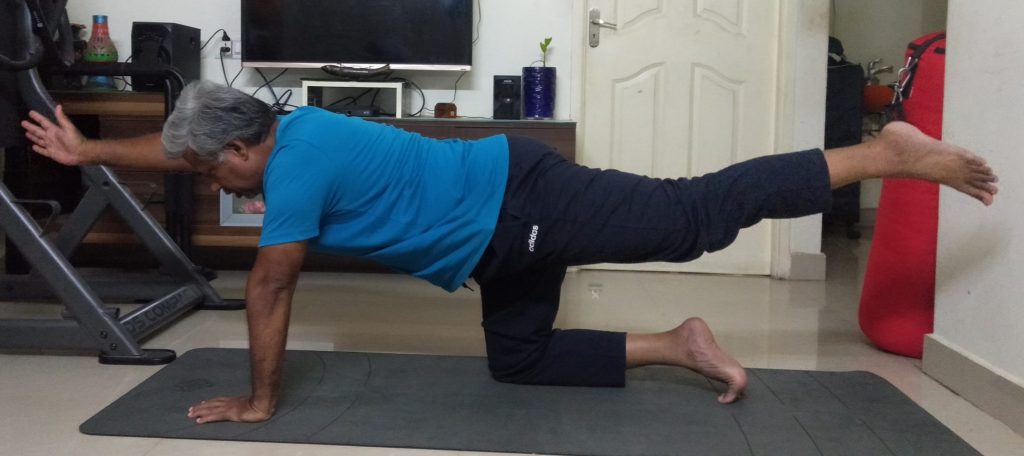
Other Benefits of Balancing Table Top Pose
- The pose strengthens the back.
- It stretches the spine and hips
- Shoulders, hands and wrists get strengthened.
- The pose improves focus.
- It is one of the effective yoga poses for memory power.
- Regular practice of the pose helps to co-ordinate the body and mind.
- It relieves mental fatigue.
Instructions
- Go on your fours. Your wrists should be directly under your shoulders and knees under your hips.
- Fix your gaze on the floor between your palms.
- Stretch your right hand forward to shoulder level. Simultaneously, stretch your left leg backwards.
- Hold the pose for 20 seconds. Return to position. Repeat the same with the other hand and leg.
Note
In case of pain in the knees, you can place a folded blanket under your knees.
Those with chronic pain in shoulders, back, wrists, hips or knees should refrain from practicing the pose.
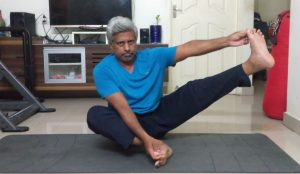
Yoga Pose for Day 39 – Half Upright Seated Angle Pose (Ardha Urdhva Upavistha Konasana)
The word ‘ardha’ in Sanskrit means ‘half’, ‘urdhva’ means ‘upright’ or ‘upwards’, ‘upavistha‘ means ‘seated’ and ‘kona’ means ‘angle’. Since this is a seated pose with one leg raised upwards
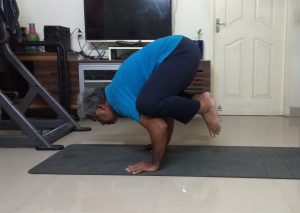
Yoga Pose for Day 37 – Crow Pose (Kakasana)
Crow Pose resembles the shape of crow and hence the name. ‘Kaka’ in Sanskrit means ‘crow’. The crow’s legs are very strong and hence using our hands as legs in this pose strengthens our hands. Crows
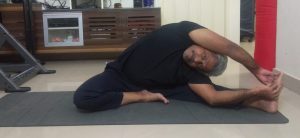
Yoga Pose for Day 36 – Revolved Head-to-Knee Pose (Parivrtta Janu Sirsasana)
In one of our earlier posts, we have given the benefits of Head-to-Knee Pose and how to perform the same. In Revolved Head-to-Knee Pose, you stretch your hand over your body to hold the stretched leg. ‘Parivrtta’ in Sanskrit means ‘to revolve’,
